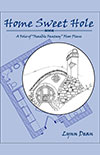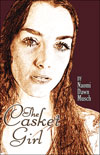The “Z” of Story Writing
We are really wrapping things up as we conclude the XYZs of story writing – and that’s what the letter Z stands for: Zipping up the Package.
You’ve finished a story. You’ve asked enough questions of your characters and plot to build it with real conflict, not fluff. You’ve created characters that are interesting and engaging. You’ve cut out unnecessary words, paragraphs, or scenes. You’ve avoided too many adverbs and adjectives, choosing instead to use stronger verbs. You’ve worked hard on the basics of sentence construction.
All in all, it’s a pretty good story.
So now you’re ready to submit it, right? Nope! Hold on.
Now’s the time to set that story aside for a little while. A few days, a week, a month, or as long as you can endure. Come back to it with fresh eyes. Trust me, you’ll forget a lot of what you’ve written.
Now start cleaning it up. Maybe you think this is unnecessary because you did your cleaning up during the “X” stage of the process. But that was the major edits stage. Think of this as the final tuning stage of the process. Remember in school how your parent/teacher used to say, “Look it over one more time.” That’s what this stage is about.
Look it over with very critical eyes. Watch for stupid typos or spelling errors. We all make them. Watch for inconsistencies. Did I really spell my main character’s name two different ways? And did I say she had blue eyes in one scene and brown in another? (These kinds of things happen all the time.)
Here’s why you need to do this. Writers sometimes mistakenly think that once they finish a story, it becomes the editor’s job to clean it up for them. Wrong! If an editor or publisher or contest judge sees that you haven’t taken the time to do your very best, and your manuscript isn’t as clean as it should be, they will pass you over. Your hard work will be rejected.
Think of it this way. Imagine one fine day you decide you want to play football in the NFL so you go down to try out with the Green Bay Packers. The coach looks at you and asks you what college you played for. You tell him you didn’t go to college.
“Oh… okay. How about high school then?”
You say, “Well, I was pretty busy in high school. I never had time to go out for football.”
Coach asks, “Well, where did you play?”
“Oh, I tossed the ball in the back yard with my sister. I was really good though.”
He’ll tell you, “Go on home, kid. You’re not prepared for the NFL.”
The same is true with publishing. Until you’ve worked hard, done your best with the basics, and learned how to really zip up the package – i.e. clean up your work and make it shine – you won’t be ready for publishing or winning contests.
Exercise:
Take a look at a story you’ve completed, preferably one that’s been sitting around for a while. Go back and improve it any way you can. And while you’re doing it, go line by line, watching for all these very important things.
- correct spelling
- proper paragraph usage (Know when to indent.)
- correct punctuation (Commas are important and need to be used correctly, exclamation points very sparingly.)
- consistency in characterization and setting
- proper use of beats and attribution (Just use said, not other fancy attribution.)
- strong, specific verbs
- run-on sentences
- proper use of dialogue (Watch those commas and quote marks, and make certain you’ve started a new line with each new speaker.)
- correct use of words that are homonyms such as their / they’re / there
Grammar rocks, so zip it up tight!
















Speak Your Mind
You must be logged in to post a comment.